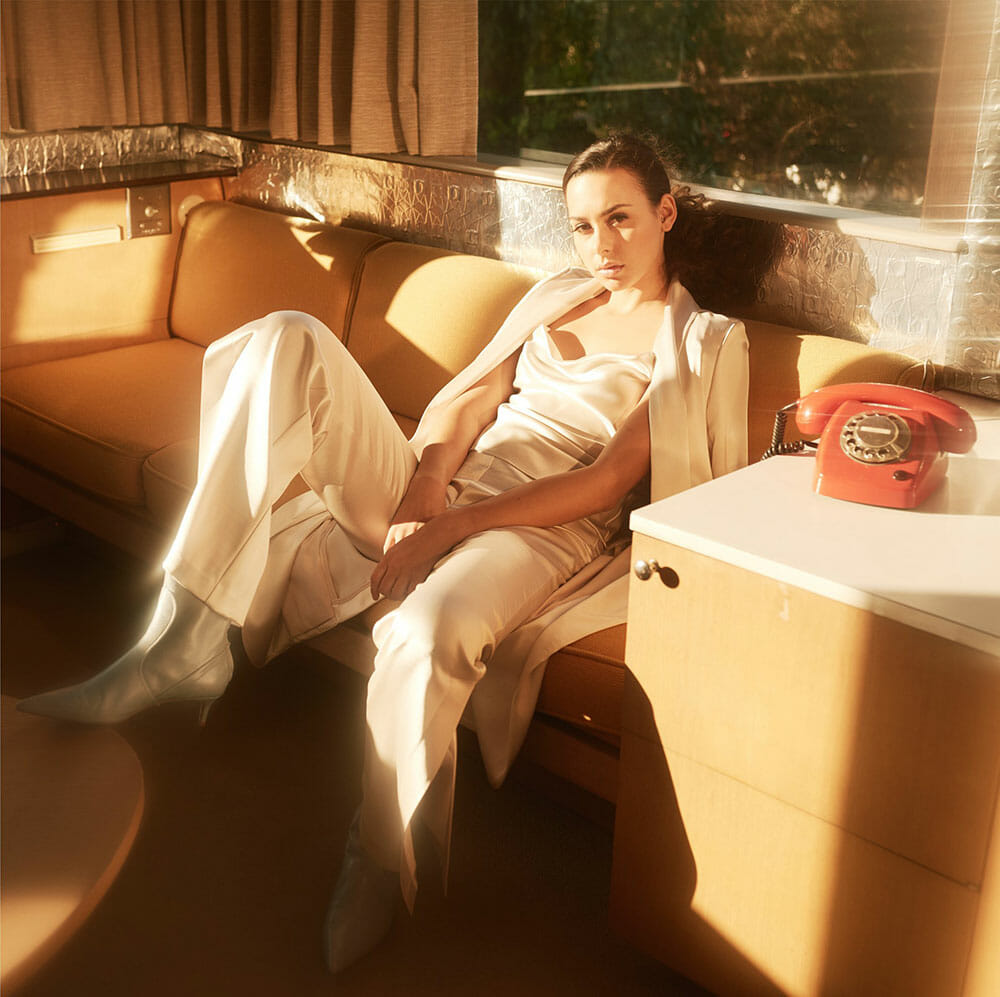
You're probably familiar with department store label A.B.S. by Allen Schwartz, known for its ruched silhouettes, the red carpet-inspired evening gowns, and the cutout cocktail dresses. Over 35 years after founding the line, the fashion industry veteran behind it now has a fresh new brand that's already gained fans like Vanessa Hudgens, Jamie Chung, Ashley Graham, and more stylish stars. (For the record, Schwartz is no longer involved in designing A.B.S.)
Schwartz has seen the industry transform significantly throughout his nearly four decades in fashion, from celebrity-driven trends to social media-fueled style — giving him the perfect vantage point for his recently-launched eponymous label. Cut and sewn entirely in Downtown LA, Schwartz's spring collection is comprised of elevated pieces that can be dressed up or down: Think ivory satin cowl neck camisoles and matching breezy pants ($219 to $290), vintage-inspired black lace once-shoulder tops ($265), chic paperbag pants in colorful and neutral hues ($290), embroidered mech and lace separates ($290 and up), and sleek floral prints that can be found on luxe kimonos and high-waisted pants ($310 to $365), to name just a few standouts.
Here, Schwartz talks about how his experiences with department stores inspired him to forge a new path for his business, how Los Angeles influences his designs, the wardrobe essentials that everyone should have on hand, and more. Read on below, then shop his spring collection online here.
We imagine you've learned quite a bit from your experience selling to department stores. What inspired you to change your approach to business?
I didn't feel department stores were reaching the customer I was designing for. Every department store looks exactly the same. You go into four or five of them and they all have the same brands… I didn't want to be another banana on the bunch. It's also an unprofitable business where you can't win. You're constantly being bullied by sales and markdowns as opposed to growing business with international and domestic boutiques who really appreciate newness and truly know their customers.
Have you always manufactured locally in DTLA? Why is it important to you to use local factories?
Yes, I've always manufactured in Downtown LA. The two most important reasons for me are speed to market and quality. I never wanted to feel that I knew I had something coming in the machines that wouldn't be available for three months. By then, the trend is wrong. I always want to manipulate trend so we constantly produce fresh and new styles. I come into the office every morning, at 7am, and love talking to everyone. I work beside my cutters and sewers, and get to watch every step of the collection's production.

Who or what inspires the designs of your relaunched contemporary line?
Anything from vintage shopping to vintage movies, flea markets to couture inspires me. Walking the streets of Venice in California or walking the streets of NYC in the summer. It's not one thing; I can be inspired going into a Nike or Adidas store. I am open to anything that sticks.
If you had to choose, what are your favorite pieces that you've designed over your career?
Any wardrobe without the "It" jacket is incomplete. For me it's always been about the "It" Jacket, a great pant, and the newness that you can implement into those two pieces. It always starts with the fashion jacket and pant, and then of course, that must-have little black dress.

Where do you see your label in the next 5 to 10 years?
I see the brand as a very important luxury label on the domestic front in boutiques, with a strong e-commerce business and making headway in Canada as well as other international opportunities. Our sales director is on her way to Paris in the next three weeks and we are looking forward to a lot of appointments with really great stores.
How do you see the fashion industry functioning in the next few years; any predictions or hopes?
I have more hopes than predictions! But I do think the industry is starting to settle down. The borderline people will fall by the wayside and the good companies who deliver strong product on a consistent basis with high standard of quality will have a chance to be more successful than ever.






